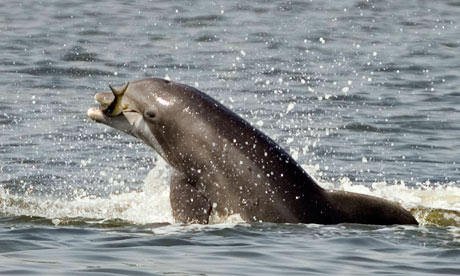Search Results for Tag: Germany
In Germany, 2011 was sunnier than ever
 No, no. Not what you might think. With a summer just as miserably rainy as the ones before and a winter mild but overcast as ever, Germany probably has not clocked more hours of sun shine than usual last year.
No, no. Not what you might think. With a summer just as miserably rainy as the ones before and a winter mild but overcast as ever, Germany probably has not clocked more hours of sun shine than usual last year.
But price hikes in fossil fuels and plummeting costs for solar energy systems have lead Germans to opt for solar energy big time in 2011. 18 billion kilowatt-hours to be precise. That’s a staggering 60 percent more in solar electricity output than the previous year, the German Solar Industry Association announced. In 2011 Germans slapped a record number of solar panels onto rooftops and walls of their homes, public buildings and industry installations. By November the one Millionth photo-voltaic system was connected to the grid.
What’s more, even from the economics point of view nuclear power is beginning to look decidedly unsexy compared to solar power – something that die-hard supporters of nuclear hadn’t deemed possible in the foreseeable future. And that’s not just because better economies of scale and new technology are lowering the price tag on solar. Not least due to Fukushima new nuclear power plants have simply become uninsurable.
Crisis Solution?

Greece has been struggling to get out from under its heavy debt crisis for more than a year now, and the government is looking for any opportunity to slash debt and increase revenues. Their new plan? Solar power. The government wants Greece to become Europe’s leading solar power producer.
Renewable energy could be one field where Greece could have a big advantage, especially with the generous amounts of sun the country gets. The government’s new plan, called “Project Helios,” would see Greece’s solar power production multiply from 206 megawatts in 2010 to 2.2 gigawatts by 2020. Right now, Germany is Europe’s leader in photovoltaics, but Greece’s energy minister says his country actually gets 50% more sun. And he also said that if the plan is successful, Greece could help the rest of Europe meet its renewable energy targets by 2020.
So clean energy might be a way to fight debt crises across Europe and elsewhere…
Too Much, Too Soon?
After the natural disaster and nuclear crisis in Japan, Germany took a 180 degree turn on its own nuclear policy. Instead of extending the life of the country’s 17 nuclear reactors, the ruling government voted to have all nuclear power plants phased out of the national grid by 2022, and the 8 oldest have already been shut down permanently.
The New York Times had an interesting article about what that actually means for Germany in the short term. Of course, environmentalists and anti-nuclear activists were happy to hear 8 reactors were being shut down right away. But in the article, some critics say the decision is actually bad for the environment. Because Germany has to find power sources elsewhere – and because the country is not ready just yet to replace all nuclear energy with renewable sources – energy suppliers have to go back to coal and fossil fuel plants to make sure there’s enough power to go around. And in the meantime, Germany has been forced to import energy from neighboring countries like the Czech Republic and France, which both depend heavily on nuclear power to produce electricity. Plus, with winter approaching, Germany could face blackouts when the demand for electricity is too much.
So we wanted to put the question out there: weighing the pro’s and con’s, what do you think of Germany’s decision to shut down its nuclear power plants?
Clean Energy vs. Environment?

Turning to renewable energy sources is an effective way to tackle climate change, but does it damage our environment too? A lot of critics say biomass production exploits important land and offshore windparks disrupt the marine habitat.
The German government is trying to find a way to address the offshore windpark problem with a new solution: a sort of bubble-curtain. The problem is, construction in the Baltic Sea produces a lot of noise underwater, and that creates problems for whales and poropoises that use sonar signals for communication. So officials are proposing a type of low-cost technology that would release bubbles from the sea floor and mute a lot of the noise. That way, the drilling and pounding wouldn’t be quite so disruptive and marine life could continue communicating as they do now. If it’s successful, the bubble-curtain idea could be used on several other underwater construction sites!
Vegan fast food for a better climate
The Melt! festival in Germany close to the city of Dessau is trying to become more environmentally friendly. Only recently solar panels have been installed. They produce enough electricity to power two festivals the size of Melt! each year. But the organizer’s commitment doesn’t stop there. Vegan and vegeterian food is strongly encouraged. We have asked at one of the stalls, why vegan food is more climate friendly than a meaty diet.
![]() read more
read more









Feedback